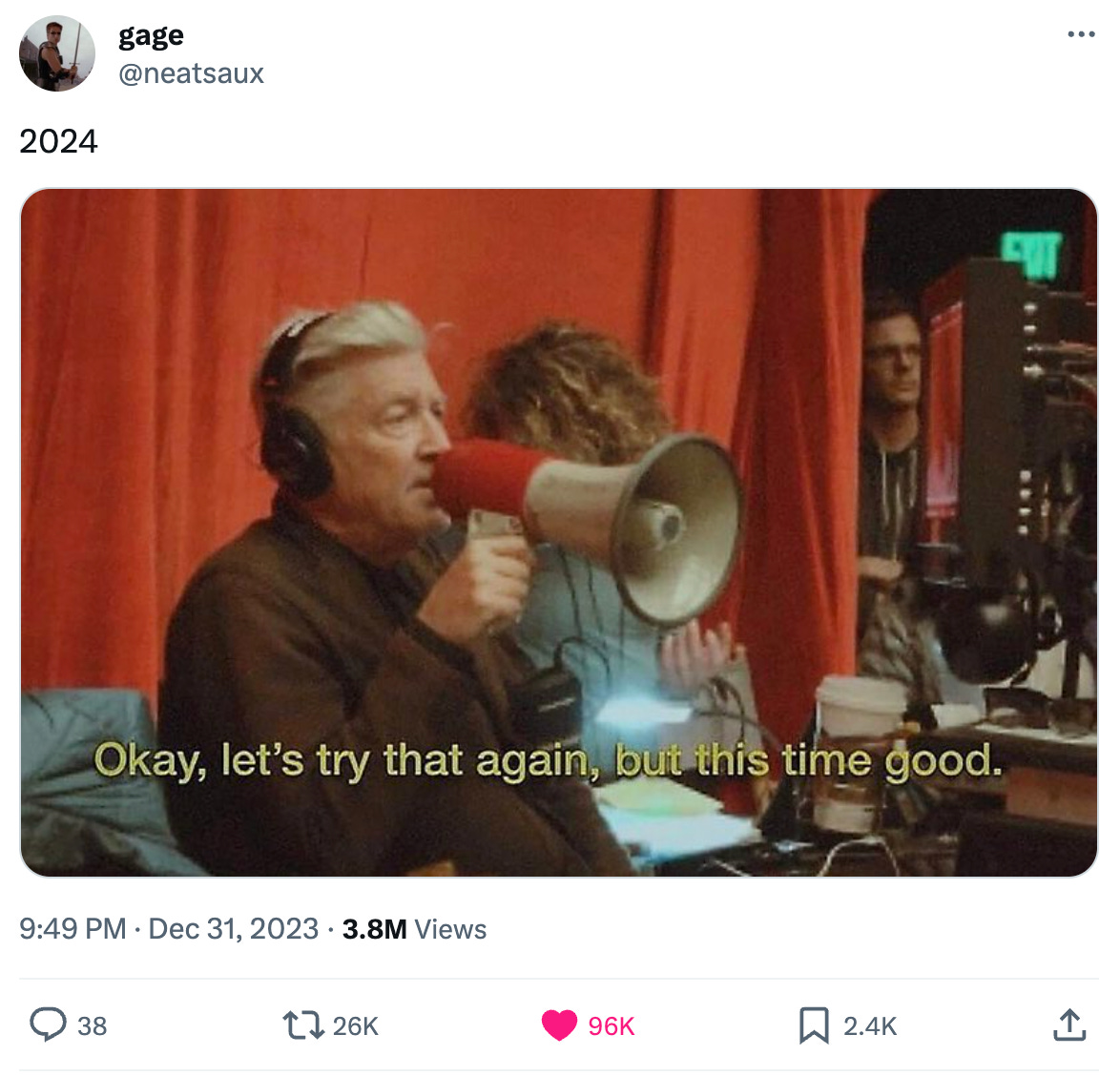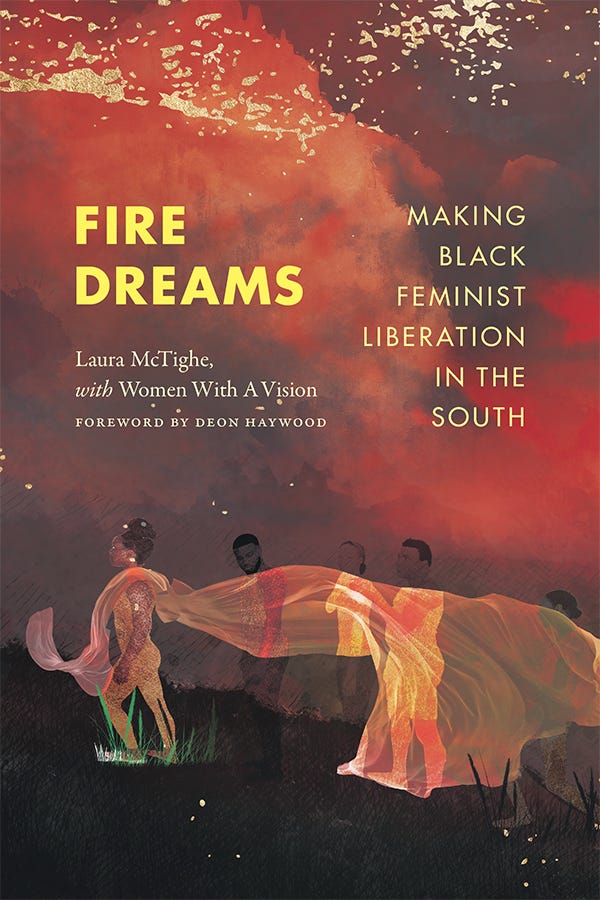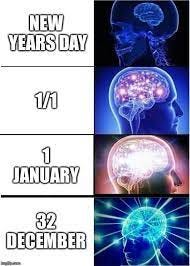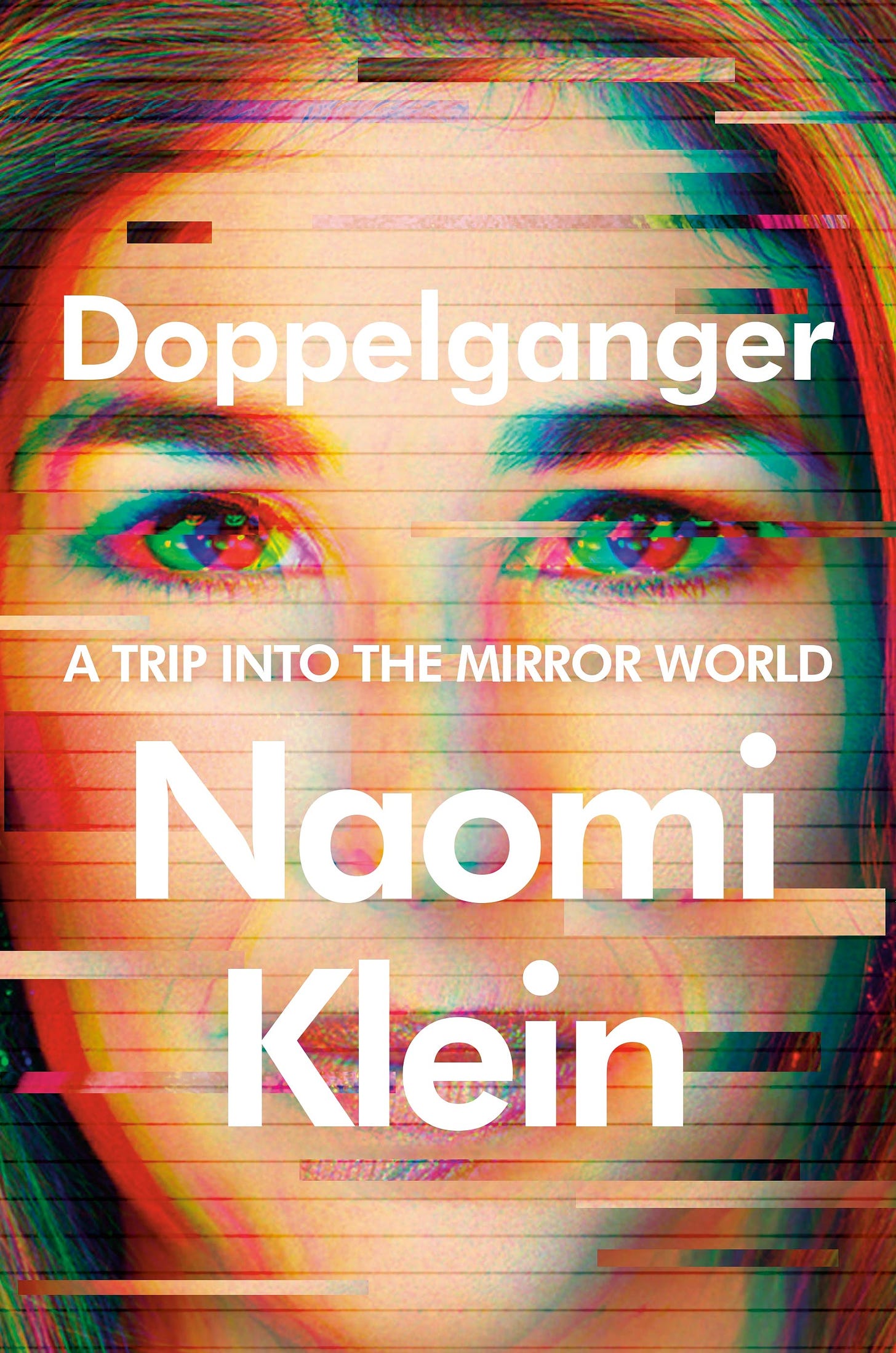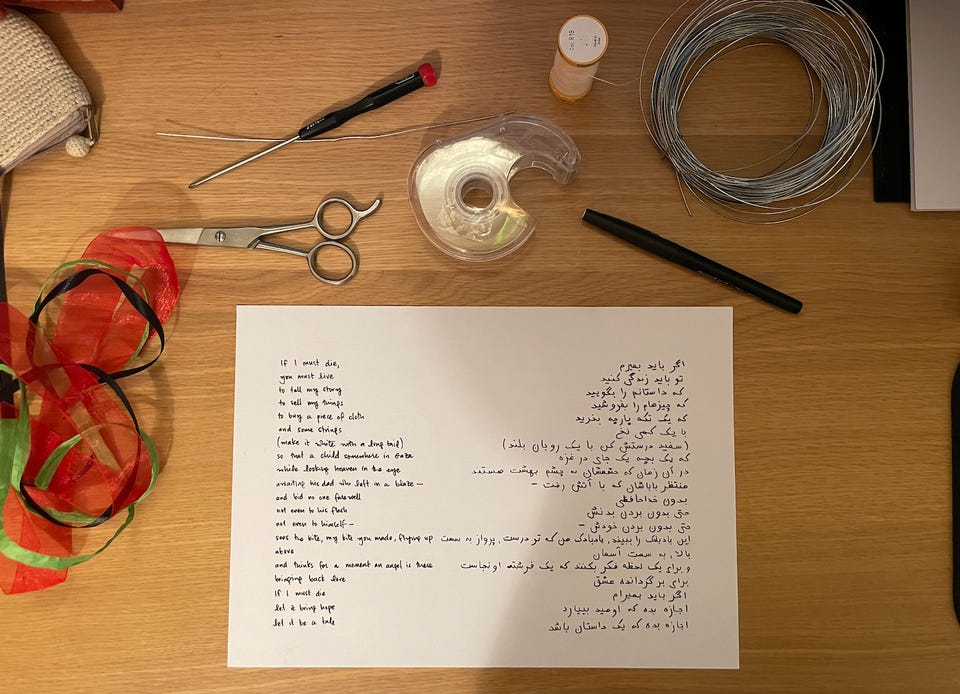Hi Everyone,
Happy New Year!
I hope that despite — or even in light of — everything, you’ve had some restful time off in the past few weeks.
This is a pretty solid summation of how I’m feeling about the start of the new year:
I mean, sort of. Of course, last year was a mix of good and bad, just like most.
So, for this month’s newsletter I’ve included my usual mix of news, recommendations, and online ephemera.
Thanks, as always, for reading. I’ve been sending Word Choice for about a year now and your welcoming responses have meant a lot to me!
EDITING STUFF
📣 ANNOUNCEMENTS
I’m really proud of what my editing clients accomplished this year, which included: 4 published books, 6 signed book contracts, and 3 article publications. Looking ahead, 10 more books are currently in production, due to be published this coming year. And there’s lots more in the pipeline!
Which brings me to this round-up of recent publication news:
First, Yael Segalovitz, published a terrific article, Psychoanaliterature, or, how the American relational move made Are You My Mother? and The Argonauts, about the role psychoanalytic theory is playing in contemporary literature and literary studies, or what she aptly calls psychoanaliterature. Focusing particularly on how Alison Bechdel and Maggie Nelson engage with work by the likes of Donald Winnicott, the article will be of interest to lots of you. As will the superb podcast Yael cohosts, also called Psychoanaliterature. I enjoyed listening to their whole first season, but would especially recommend their two-part conversation with Judith Butler.
Next, I had the pleasure of working with Cesar Favila as he completed his terrific first book, Immaculate Sounds: The Musical Lives of Nuns in New Spain, just published by Cambridge University Press. For those of you interested in religion and gender, this innovative, insightful reading of musical and religious history is sure to be of great interest!
And last, but certainly not least, you can now pre-order a book I’ve had the honor of helping to grow from its earliest days as a dissertation to publication by Duke University Press, Fire Dreams: Making Black Feminist Liberation in the South, coauthored by Laura McTighe and Women With A Vision. I’ll be sharing more about this phenomenal work as its March 2024 release gets closer, but for now, wanted to give you all the opportunity to get in your orders extra early.
🎙 TESTIMONIALS
I’m hoping to update my website a bit in the coming months, including the Testimonials page. If I have done editing work for you and you would be willing to write a testimonial for my website, I’d be quite grateful! I created this submission form to try to make an awkward ask slightly less awkward, but you’re also welcome to just email me if that’s easier.
📅 SCHEDULING
Want to work together in 2024? Now’s a great time to schedule a conversation to make those plans. Please feel free to respond to this message and we’ll get a meeting on the books ASAP.
OTHER STUFF
👂 LISTENING
As I think I’ve mentioned before, I tend to go back and forth between audiobooks and podcasts, but I almost always have some kind of audio infatuation. Which means that this month, I both have a podcast to recommend, and then a few to mourn / hope don’t disappear because the economic bubble which inflated around them is bursting.
First, the recommendation which is, and please hear me out,1 about Boston’s legendary infrastructural boondoggle, The Big Dig. It’s fascinating, I swear! As a kid growing up in New England, the Big Dig was the big video game boss we had to fight to get into Boston. Every time we started to approach the city, my parents would silence me and my brother so that they could tensely navigate whatever new detour had arisen to obstruct and confuse them. I learned early that Boston’s infrastructure was as erratic and infuriating as the city’s drivers.2 And then, one day, I took the silver line to Logan Airport! And another time soon after that, delayed at Logan by a blizzard, a friend picked me up from the airport and took me out for a quick dinner nearby like it was nothing. The Big Dig was over and had, it seemed, worked? But how? And at what cost? Thankfully, Ian Coss has put together an artful, informative nine-episode podcast to tell the tale, called, of course, The Big Dig. Come for the billions of dollars, stay for the accents and wild political machinations.
Meanwhile, a few of my favorite podcasts have currently been put on hold or sent into uncertain futures. It’s not that podcasting didn’t look like a bubble, of course it did. And it’s not that we don’t know that bubbles burst, of course we do. The point is that some of the work made in those bubbles is very good and important and it’s enormously disappointing to lose it. And to think of all the people who made it losing their jobs. I know there have been a number of cancellations recently, but the three I took particular note of were Death, Sex, and Money; Stolen; and Heavyweight. Their cancellations were the result of big cuts around the industry, including at WNYC, Spotify, and Gimlet. To get a sense of what’s happening and why, I was grateful to see Piers Gelly’s assessment of the situation, Gimlet on the Rocks, published in n+1.
Gimlet is now gone. Maybe in the year 2040, season 31 of Slow Burn will reconstruct the podcast bubble in a blend of 2010s nostalgia and anthropological fascination, as a way of illuminating this moment in media and labor. Until then—and against the backdrop of industry wide layoffs that have hit Vox, Pushkin, WNYC, Amazon Studios, SiriusXM, Disney, and NPR—we’re left asking: What was Gimlet? What was its stylistic contribution to the podcast as an art form? And what does the studio’s demise mean for the future of the industry and the medium?
🎥 WATCHING
I’ve been on airplanes a lot more than usual in the last few months, which has meant some haphazard movie watching. One of my favorites was Past Lives, directed by Celine Song. It’s a story about chance and choices and I found it quite captivating. If you’d like to hear the lead actress, Greta Lee, talk about her experience making it, I recommend her appearance on Fresh Air.
👁️ SEEING & READING 📖
It’s been a very Philip Roth couple of months. First, I went to see a performance of the play, Sabbath’s Theater, adapted from Roth’s novel by Ariel Levy and John Turturro (who also starred in it). Then, I decided it was time to actually reread the Roth book I’d been thinking about the most in the aftermath of October 7th, Operation Shylock. In the novel, authorial Roth encounters a doppelgänger who is advocating for what he calls “Diasporism” — claiming, more or less, that Israel is not safe for the Jews, and they must return to Europe. It turns out, I was far from the only one reaching for this book in this moment. Soon after finishing with Roth, I picked up Naomi Klein’s brilliant new book, Doppelganger: A Trip Into the Mirror World, in which Operation Shylock is a key text.
Klein’s book is a helix of woven together from numerous strands — each a faultline tremoring through our current moment. The helix is wrapped around a core story about how Klein has been tethered to her own doppelgänger, Naomi Wolf. In this book, Klein is able to bring history together with our all-too-online present to tell the story both of how we have doubled ourselves to fight across numerous divides, and how we have thought about these events and ways of mirroring. She’s self-reflexive and wide-ranging without ever letting go of her thesis. It just gets deeper and more convincing as the book expands. If you want more of a sense of the book, I strongly recommend reading Jia Tolentino’s conversation with Klein in The New Yorker, and listening to Arielle Angel interview her for On The Nose, Jewish Currents’ podcast. And if you really want to cut to the most topical chase, Klein persuaded her publisher to let her share two chapters from the book on “Israel, Palestine, and the Doppelganger Effect,” for free download.
Finally, of course, I’ve also been reading a lot about Gaza.
As I did last month, I want to share here some of the articles that have helped me to process, think, and act:
Jacqueline Rose, “You Made Me Do It,” The London Review of Books
Anton Shammás, A Letter and Poem to Critical Inquiry, Critical Inquiry
Adania Shibli, A Lesson in Arabic Grammar by Toni Morrison, Jewish Currents
Ariella Aïsha Azoulay, The Ruins Should Be Inhabited as Part of a Process of Repair: The decolonization of Palestine is not only a Palestinian project, but also a Jewish one, Hyperallergic
Dylan Saba, Tectonic Shifts: A conversation with Darryl Li, The Baffler
Masha Gessen, In the Shadow of the Holocaust: How the politics of memory in Europe obscures what we see in Israel and Gaza today, The New Yorker
Samantha Rose Hill, Hannah Arendt would not qualify for the Hannah Arendt prize in Germany today, The Guardian
Suzanne Schneider, Light Among Nations: For Yoram Hazony, the founder of the National Conservative movement, Israel is an illiberal model for the international nationalist brigade, Jewish Currents
Alex Colston, This War Is Causing Mass Trauma. How We Respond Matters, The Nation
Yuval Abraham, “A mass assassination factory”: Inside Israel’s calculated bombing of Gaza, +972 Magazine
Adam Shatz, Vengeful Pathologies, The London Review of Books
✍️ WRITING
After not writing a newsletter for two months, I’ve now probably written too much in this one. So I’m going to keep this section (ironically?) brief.
I just want everyone to have a chance to read Walter Benjamin’s Writer’s Technique in Thirteen Theses, originally published in One Way Street3 and brought back to my attention by Samantha Rose Hill.
Anyone intending to embark on a major work should be lenient with himself and, having completed a stint, deny himself nothing that will not prejudice the next.
Talk about what you have written, by all means, but do not read from it while the work is in progress. Every gratification procured in this way will slacken your tempo. If this regime is followed, the growing desire to communicate will become in the end a motor for completion.
In your working conditions avoid everyday mediocrity. Semi-relaxation, to a background of insipid sounds, is degrading. On the other hand, accompaniment by an etude or a cacophony of voices can become as significant for work as the perceptible silence of the night. If the latter sharpens the inner ear, the former acts as a touchstone for a diction ample enough to bury even the most wayward sounds.
Avoid haphazard writing materials. A pedantic adherence to certain papers, pens, inks is beneficial. No luxury, but an abundance of these utensils is indispensable.
Let no thought pass incognito, and keep your notebook as strictly as the authorities keep their register of aliens.
Keep your pen aloof from inspiration, which it will then attract with magnetic power. The more circumspectly you delay writing down an idea, the more maturely developed it will be on surrendering itself. Speech conquers thought, but writing commands it.
Never stop writing because you have run out of ideas. Literary honour requires that one break off only at an appointed moment (a mealtime, a meeting) or at the end of the work.
Fill the lacunae of inspiration by tidily copying out what is already written. Intuition will awaken in the process.
Nulla dies sine linea [‘No day without a line’] — but there may well be weeks.
Consider no work perfect over which you have not once sat from evening to broad daylight.
Do not write the conclusion of a work in your familiar study. You would not find the necessary courage there.
Stages of composition: idea — style — writing. The value of the fair copy is that in producing it you confine attention to calligraphy. The idea kills inspiration, style fetters the idea, writing pays off style.
The work is the death mask of its conception.
💬 CHOICE WORD(S)
This month’s choice words are, If I Must Die, a poem by the Palestinian poet, literature professor, and activist Dr. Refaat Alareer, who was killed by Israel in December.
If I must die,
you must live
to tell my story
to sell my things
to buy a piece of cloth
and some strings,
(make it white with a long tail)
so that a child, somewhere in Gaza
while looking heaven in the eye
awaiting his dad who left in a blaze—
and bid no one farewell
not even to his flesh
not even to himself—
sees the kite, my kite you made, flying up
above
and thinks for a moment an angel is there
bringing back love
If I must die
let it bring hope
let it be a tale.
Refaat Alareer
رفعت العرعير
1979-2023
To learn more about Refaat Alareer, the Palestinian poet Mosab Abu Toha has written, Palestine Is a Story Away: A Tribute to Refaat Alareer, for the Los Angeles Review of Books, and about his own Perilous Journey Out of Gaza for The New Yorker.
You can also listen to Brian Cox read Refaat Alareer’s poem for the Palestinian Festival of Literature.
And Sahar Tavakoli has published beautiful instructions for turning the poem — in many different translations — into a kite at The Stopgap.
Pun unintended.
I know some of you are from Boston. And you know I’m right.
I’m also compelled, after much page-turning, to note that it is in Walter Benjamin, Selected Writings, Volume 1, 1913-1926, pages 458-460, under the heading, “Post No Bills.” And if any of you can please point me in the direction of an easy-to-access-and-navigate table of contents for that multi-volume set of Benjamin’s writings which doesn’t force me to trouble their already strained spines every time I want to find something, I’d be awfully grateful.





